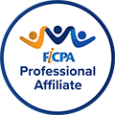What is a Life Insurance Trust?
One must understand the definition and the main purpose of life insurances and trusts to understand a life insurance trust. There are three parties to a life insurance, the owner, the beneficiary, and the insured. The owner is the person or entity who pays the premium on the policy. The owner could name him or herself as the beneficiary. However, the owner does not have to be the beneficiary, he or she may choose anyone else as the beneficiary. The beneficiary is the person that will receive the benefits, or the life insurance’s proceeds once the insured person dies. The insured party is the person whose life determines when the insurance proceeds are paid out. In other words, the insured person’s death triggers the payment of the benefits to the beneficiary.
What is a Trust?
A trust is a fiduciary arrangement that allows a third party, or trustee, to hold assets or income for the benefit of beneficiaries. Similar to a life insurance there are three parties to a trust. The settlor, the person or entity who creates the trust and usually transfer the property into the trust; the trustee, the person who holds and manages that property for the benefit of the beneficiary; and the beneficiary, the person who receives the benefit of such property.
There are many reasons why life insurances and trusts are done. However, the main reason of both is financial planning. Many persons are the financial pillar of their families, and their income are essential for the support of their families. Life insurance proceeds could serve as a substitute of that income in the event that person may die. Similarly, trusts are used to control one’s wealth. You decide who will receive your property, when that property should be distributed. In addition, you may protect that property from creditors of the beneficiaries, among other benefits.
What is the Purpose of Life Insurance Trust?
Life insurance proceeds are generally exempt from most taxes, including income tax. However, life insurance proceeds are taken into account when calculating person’s estate. In other words, the life insurance proceeds (in most instances substantial amount of money) is added to the life insurance owner’s estate at the time of his or her death. Consequently, the beneficiaries of the estate (usually the families) may have to pay estate taxes, which is forty percent (40%) of any amount above the current $5,250,000.00 exemption.
It is important to note this figure is set by congress and it may change whenever they decide to. Thus, even though set at over 5 million now, political forces may set the exemption at a much lower figure in the future, affecting many more people. Thus, a life insurance trust may become essential to most people’s financial planning.
However, there are certain requirement that must be met for the life insurance trust be effective. Most importantly, the trust must be irrevocable and the deceased must not have had any incident of ownership in the trust at the time of death. In addition, there are other rules as the three year look-back rule, which allows the IRS to look three years back from the death of the deceased and in certain instances those transfers will bring the life insurance proceeds back into the deceased’s estates.
A brief explanation of how a trust works is necessary to understand what irrevocable means. A trust divides legal title from equitable title. The trustee of the trust gets legal title and the beneficiary retains the equitable title. Therefore, the trustee, generally, chooses how to manage and what to do with the property in the trust, but the benefit will always be for the beneficiary, the person who retains the equitable title.
In order for the trust to be irrevocable, the settlor (deceased person), once he or she created the trust, and gave the trustee the legal title, the settlor could not, in any event, regain legal title on the property transferred into the trust. In lay terms, once the property is transferred into the trust, the settlor has given up his legal title to that property. Thus, in a irrevocable life insurance trust, once the life insurance is transferred into the trust, the only person that may sell the life insurance or manage it is the trustee and no the settlor. Nevertheless, it is a very effective and widely used financial tool for those whose estate are higher than the current exemption.






